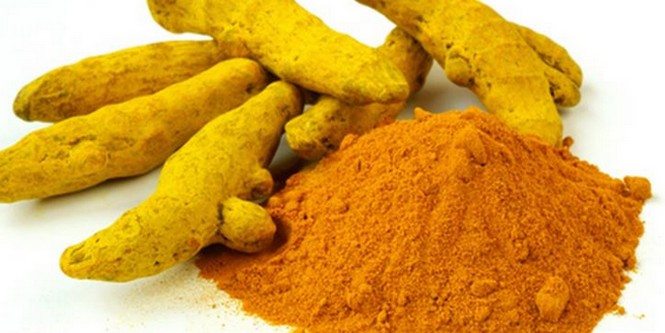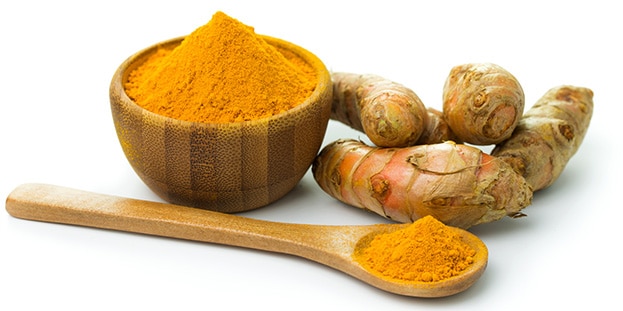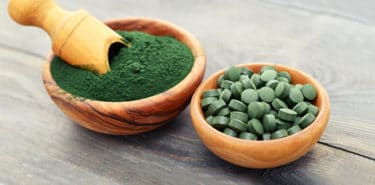Turmeric is a herbal spice that has been used for centuries, and has a number of positive effects on human health beyond flavoring the dishes. Turmeric, also known as Indian saffron, (Curcumin) is rich in nutritional value; it has potassium, iron, manganese minerals, vitamins C and B6. Turmeric has been used as a source of healing since ancient times. Nowadays, it is used as a flavoring spice in food and food industry and it is widely used in cosmetic products because of its benefits to skin health. It is good for heartburn and pain, Crohn’s disease, constipation, gallbladder disease, cholesterol and bowel syndrome.
Table of Contents
Benefits of Turmeric
Turmeric has numerous benefits for human health. It has been proved by the scientific studies that turmeric plant which prevents the development of many diseases, strengthens the human immune system. Turmeric is a valuable food that protects the body from diseases and has rich nutritional values.
Turmeric, has many good effects from heart health to skin appearance, contributes to the healing of existing diseases. It also prevents and reduces risk of disease. Turmeric, which is very effective against inflammation which causes many health problems in the body, decreases risk of heart disease, prevents cancer with antioxidant feature.
It is very useful for prevention of diseases such as Alzheimer’s, dementia and depression. It may also accelerates healing process of burns and wounds. Turmeric consumption is as effective as antidepressant for people with depression. Chronic fatigue can be minimized by the consumption of turmeric.
What is Curcumin?
Is Curcumin same as turmeric?
There are many scientific studies on the curcumin substance, which is an active ingredient of turmeric powder, which prevents cancer development and positively affects cancer treatment. However, turmeric cannot be used as a direct drug and should not be used in the treatment of diseases withouth advice doctor; despite all positive effects on health.

Today, turmeric is used as a nutritional supplement for the prevention of inflammation and is recommended as a supportive medicinal plant, especially because of its positive effects on the solution of arthritis, stomach, skin, liver and gall bladder problems, cancer and other health problems.
Can Turmeric be used directly in the treatment of diseases?
Research on the health effects and safety of Turmeric by the US National Center for Complementary Health (NCCIH) has suggested that it is a safe supplementary herb when administered orally or applied topically to the skin in amounts that have been tested for suitability with health, but this opinion does not mean that it can be replaceable with drugs.
High doses of turmeric or long-term use can cause digestive system problems and may adversely affect the medications used in some diseases. Therefore, people who want to use turmeric should consult their physician when they are sick.
Which diseases are good for turmeric?
Turmeric is a natural anti-inflammatory agent
Turmeric has an anti-inflammatory effect and has an antipyretic effect on fever, analgesic effect on pain and cutting down the inflammation. It helps the body to fight with unknown bacteria and contributes to the repair of damage.
Inflammation plays a role in many chronic diseases, leading to serious problems such as heart issues, cancer, metabolic syndrome and Alzheimer’s disease.
Foods with anti-inflammatory compounds that fight inflammation are effective in preventing these diseases. Turmeric, which is one of the leading these foods, can eliminate the conditions causing the formation of diseases.
Turmeric has very strong antioxidant properties, protects against diseases
Free radicals present in the body contain reactive molecules containing unpaired electrons. These radicals can react with important organic substances such as proteins, fatty acids and DNA, resulting in adverse events.
Antioxidants protect the body against free radicals. Thus, organic substances are not damaged and the body becomes resistant to diseases. Turmeric is a powerful antioxidant source that can neutralize free radicals in terms of structure.
Reduces the risk of heart disease
Causes of heart disease are being investigated for many years. It is revealed that the factors causing heart disease are quite complicated and more than one. Some foods are able to reverse the negative conditions by positively influencing the health of the heart with their nutritional values. One of these foods is turmeric. One of main benefits of turmeric is development of function of endothelin, known as lining of blood vessels.
Endothelin regulates blood clotting and blood pressure. Therefore, it has been shown in scientific studies that atherosclerosis and cardiovascular diseases are less developed in people who use the appropriate amount of food regularly as a spice in their food.
Does Turmeric protect against cancer?
Turmeric is one of the foods that protects the body against cancer. With its antioxidant properties, it protects the body from external factors and free radicals. Cancer formation occurs by uncontrolled growth of cells. Turmeric, which plays an important role in cell renewal, is one of the most important foods that reduces the risk of cancer. Turmeric prevents skin irritation that occurs frequently after radiation therapy for breast cancer.
One of the most important effects of turmeric is to reduce the risk of common diseases such as colon, prostate and breast cancer. Nowadays, it is used as a supportive herb in many countries for cancer treatment. However, cancer patients should never use Turmeric without consulting their physician. Because it may adversely affects the current treatment.
The effect of turmeric on Alzheimer’s
Alzheimer’s is the most common neurodegenerative disease worldwide, and cannot be fully treated today. Therefore, it is very important to prevent its formation. Experts say that alzheimer’s risk can be significantly reduced with lifestyle change and proper nutrition. It is known that oxidative and inflammatory damage are involved in Alzheimer’s disease.
Turmeric is a medicinal herb that has beneficial effects for both.
Therefore, the risk of developing Alzheimer’s disease in people consuming an adequate amount of turmeric from the Middle Ages of life will be seriously reduced. Turmeric has a positive effect on forgetfulness (dementia).
The effects of turmeric, depression and unhappiness
A Scientific research has shown that turmeric is as effective as drugs in the treatment of depression. As effective as antidepressant drugs, turmeric is quite effective in preventing and treating depression. Therefore, it is recommended in many countries that people who are depressed consume turmeric. Moreover, turmeric does not have severe side effects like some antidepressant drugs.
People with frequent depression and melancholy will feel better and protected from these diseases if they start using turmeric as a spice in their daily meals before they become more severe. However, people with severe depression or patients who are still under treatment are advised to consult with their physician before using turmeric.
Slow down the aging process and rejuvenates skin
Turmeric contributes to cell regeneration and prevents the development of diseases. At the same time, vitamin B6 and vitamin C in the turmeric are the useful vitamins for the skin. Turmeric, which protects the skin health, has the characteristic of slow down the signs of aging. Therefore, people who consume turmeric have a healthier and more vivid skin and postpone the signs of aging.
Balances cholesterol and blood pressure levels
The way to lower bad cholesterol resulted from the consumption of unhealthy foods is possible by canalizing to healthy foods. Foods that balance blood sugar and blood pressure lower bad cholesterol. Turmeric has good effect on cholesterol levels.
Turmeric, a plant that prevents inflammation (inflammation) throughout the body, can be used against this especially bad cholesterol. Turmeric, which balances cholesterol level, is protective against the formation of cardiovascular problems. In addition, the risk of heart attack after surgery is reduced by the use of turmeric.
Protects digestive system health, good constipation
The most common problems of the digestive system are constipation, difficulty in digestion, bloating and flatulence. The consumption of correct and beneficial nutrients can solve these problems. Turmeric consumption is good for the flatulence and bloating in the stomach and eliminates the problem of constipation.
People who consume regular turmeric have a regular digestive system. Turmeric regulates the digestive system and prevents the formation of chronic diseases such as constipation. It is also effective against uncomfortable diseases such as flatulence and bloating. People who experience these problems can be treated naturally with turmeric.
Turmeric helps to lose weight
One of the best-known benefits of turmeric is the regulation of blood sugar. Preservation of blood sugar level eliminates the need for sweets and feeling hungry fast. At the same time, the turmeric protects the health of digestive system, helps to lose weight.
Turmeric juice, tea and turmeric powder added to the food are the best friends of those who want to lose weight. If those who do diet and try to lose weight start using turmeric as a spice in their diet, will find a serious benefit.
How to consume Turmeric?
It is a type of spice that is known and frequently used with different names around the world. It, also grown from different regions of India, Central America and Asia, is also known as healing plant. Turmeric, which is generally used for colorizing dishes, food and cosmetic products, was first used in medicine.
Today, the consumption of turmeric, which can be easily accessed and used at home, has become widespread. Turmeric is used to give taste, smell and color to the dishes made. The turmeric, taken in powder or plant form, can be consumed by combining it with different foods. It is also possible to consume juice and tea. For example, some turmeric powder can be mixed with milk and honey.
Where is Turmeric Used?
It can be consumed with different foods as in other spices. The types of food and food that turmeric can be used include;
- It is possible to sprinkle some turmeric on the omelette and eggs prepared in the morning. Turmeric will give egg a pleasant taste and benefit from its nutritional values.
- It is used mostly with cauliflower, potatoes and other root vegetables
- Turmeric can be used for the coloration of rice pilaf
- Can be consumed by mixing with milk and honey to make use of turmeric
- It can be used in making sauces and salads together with other spices.
- Turmeric tea can be prepared to benefit from its benefits and to lose weight
- It can be consumed as snacks between main meals by adding into the yogurt
The benefits of Turmeric Tea
Turmeric tea has been used as a source of healing since ancient times. Nowadays, research has proved the benefits of it. Those who do not use enough of the Turmeric in food can make use of this valuable food by preparing its tea.
All the properties of turmeric are also present in its tea and have a positive effect on health. Turmeric tea protects against diseases, helps weight loss and eliminate stomach problems. Nowadays, many dietitians recommend it for their weight loss.
How to prepare Turmeric Tea?
- 1 teaspoon powder turmeric
- 1 teaspoon of grated turmeric
- 1 teaspoon honey
- Freshly squeezed lemon
- 4 cups of water
Boil for 15 minutes with water and turmeric. Drain the boiling water and add the other ingredients into it and drink hot or cold. 1-2 glass should be consumed daily. You can keep your tea in the refrigerator.
What is Turmeric Pill?
Turmeric pills are consumed to take advantage of this plant’s important health benefits. The purpose of consumption of turmeric pills that can be taken as supplement is to strengthen the immune system of the body, to take advantage of its vitamins and to be taken as an antioxidant.
According to the physicians, it is considered unnecessary to take additional supplements as long as nutrients can be consumed. Turmeric is not a mineral, so it should preferably be taken naturally with meals. Turmeric, taken as root or powder, can be used in meals together with different foods.
Side effects of turmeric
Turmeric is a healthy food source. Consumption should be sufficient as in other food types. The effects of turmeric may vary depending on the body. Unnecessary and excessive use can cause problems in terms of health. Patients with cancer treatment and patients with cardiovascular problems should consult a doctor before using turmeric.
Side effects of excessive use of turmeric;
- May cause flatulence and cramps in those with sensitive body
- It is recommended that cancer patients should consult with their doctors
- A high rate of use can cause tachycardia (palpitations)
- Very frequent and high amounts of consumed turmeric can cause vomiting
- Liver disease patients should use in consultation with the doctor
- It is one of the foods that people with bleeding disorders should not consume
- Turmeric has a blood thinning effect, those who had undergone to surgery should not use after surgery for a while
- Turmeric is useful for diabetes but the amount of consumption should be considered.
- Do not use with drugs such as aspirin and warfarin, it can dilute blood more than desired. For more: >>> Turmeric




